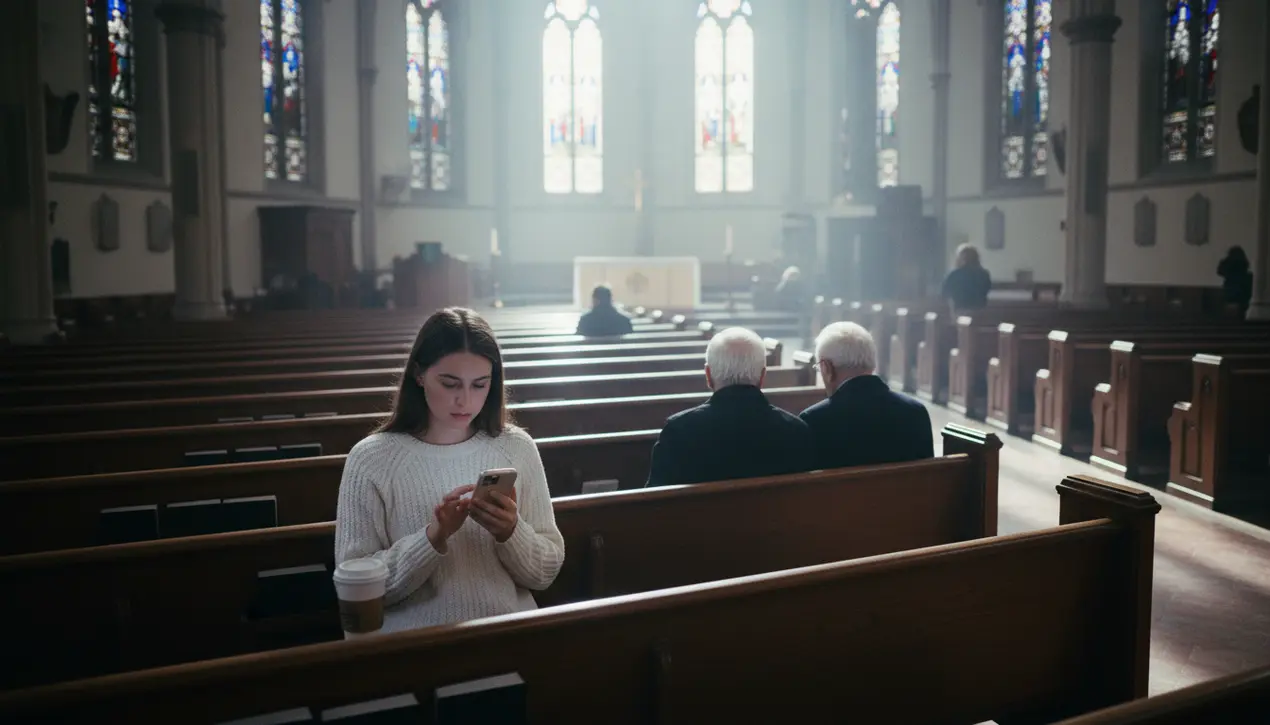
Otherlaw & courtsHuman Rights Cases
U.S. faith levels plummet to lowest on record.
LA
Laura Bennett
15 hours ago7 min read4 comments
The pews are growing quieter, the collection plates a little lighter, and the daily rhythms of American life are increasingly being set to a secular beat. A profound cultural realignment is underway, one that feels less like a sudden collapse and more like a slow, generational tide receding.According to a new Gallup poll, fewer than half of Americans—a mere 49%—now say religion is an essential part of their daily lives, a staggering 17-point drop from the 66% who affirmed this just a decade ago in 2015. This isn't just a statistical blip; it ranks among the largest declines in religiosity measured globally, a seismic shift for a nation that has long prided itself on its exceptional piety among wealthy peers.I’ve spoken with people in coffee shops and community centers, and the stories behind these numbers are deeply personal. A young teacher in Ohio told me her connection to the church wasn't broken by a single moment of doubt, but simply faded as her social circle widened and her Sunday mornings became filled with brunch and yoga instead of sermons.This sentiment echoes the data, which shows the U. S.is rapidly converging with the median of other OECD nations, where only 36% of adults call religion important. Gallup researchers Benedict Vigers and Julie Ray note the rarity of such a steep decline, observing that only 14 out of over 160 countries have seen drops exceeding 15 percentage points in the past decade.The American identity is being fundamentally rewritten, transitioning from a faith-centered nation to one where religion no longer defines the daily lives of most people. This shift is made starkly visible by the estimated 15,000 churches expected to shutter their doors this year, a number that far outpaces new openings and speaks to a hollowing out of physical community hubs.Concurrently, a record 29% of Americans now identify as religiously unaffiliated, according to Pew Research, while those identifying as Christian have plummeted to 62%, down from 78% in 2007. Yet, to view this solely as a story of vanishing faith is to miss the complex, contradictory heart of the matter.As one pastor in Texas lamented to me, his congregation may be smaller, but its political influence has never been more potent. Faith-based communities remain profoundly influential, a reality underscored by the 2024 election where, per the Public Religion Research Institute, President Trump captured 85% of the white evangelical vote.This creates a fascinating national paradox: the U. S.no longer fits neatly into any global category, possessing a medium-high Christian identity but only middling religiosity—a mix seen in few other places. The leading edge of this exodus, as PRRI CEO Melissa Deckman points out, is being driven by Gen Z women, who are increasingly shunning organized religion.While anecdotal stories circulate about a 'return to tradition' among some young men, the data suggests this is not happening on a scale sufficient to reverse the overarching trend. The cultural consequences ripple far beyond politics, potentially reshaping social safety nets, community cohesion, and the very fabric of national identity, forcing a re-examination of what binds us together when shared spiritual beliefs no longer serve as the common thread.
#religion decline
#Gallup poll
#United States
#cultural shift
#Gen Z
#featured
Stay Informed. Act Smarter.
Get weekly highlights, major headlines, and expert insights — then put your knowledge to work in our live prediction markets.
Comments
Loading comments...
© 2025 Outpoll Service LTD. All rights reserved.